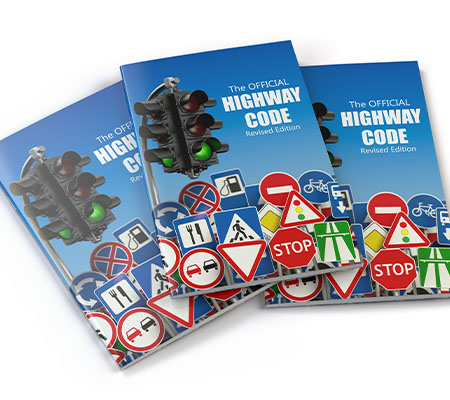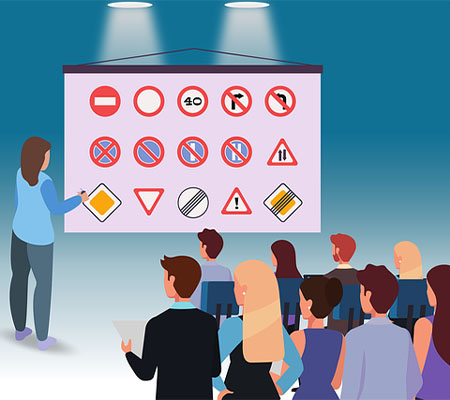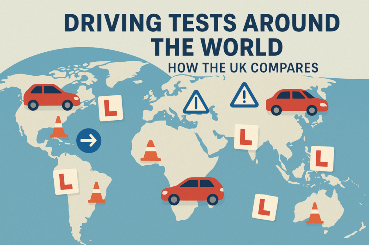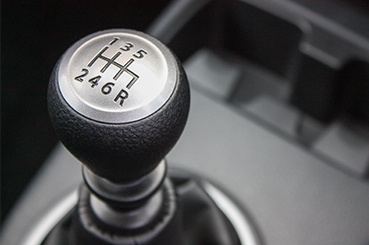
Do you get nervous when thinking about taking your driving theory test? It’s normal to feel a little anxious; this is an important step in getting your driver’s license. But don’t worry – we’re here to help! It’s essential to recognise your own abilities in how you learn – not everyone is the same, some may be visual learners, and some may be kinaesthetic.
In this blog post, we will discuss how different learners can prepare for their car theory test. So if you’re thinking “how on earth can I revise these driving theory test questions”, don’t worry. We will provide tips for driving theory tests and tricks that cater to a range of learning styles so that you can ace your theory test with ease!
Visual Learners:
What is a Visual Learner?
Visual learners are those who learn best when they can see and observe things. They absorb information quickly by looking at diagrams, charts, videos or pictures. These types of learners need to be able to see how something works in order to understand it.

Visual Learner Strengths:
For visual learners, they are great at remembering what they see and can quickly absorb information when presented in visual formats. They have the ability to understand things better by looking at diagrams, charts, videos or pictures. Visual learners also tend to be creative and good problem solvers as they can easily recognise patterns and connections between different elements.
Furthermore, they often excel in spatial tasks such as mapping out routes or interpreting graphs and charts. In addition, visual learners are able to pick up on details that others may miss due to their keen observation skills.
How to Pass Driving Theory Test?
To help you prepare for your car theory test, if you are a visual learner, you could read signs or The Highway Code aloud whilst studying, as well as colour coding topics on paper.
Another driving theory test tip is visually representing information from your theory handbook with mind maps.
Or, if you’re creative, you could also make flashcards to place around your room to reference back to at any point.
Auditory Learners:

What is an Auditory Learner?
Auditory learners are those who learn best by listening and speaking. They prefer to hear information in order to absorb it, such as lectures or conversations.
Auditory learners tend to have good memories for spoken words and instructions, so they can easily recall what they have heard. This type of learner is particularly good at understanding how language works, making them great communicators.
Auditory Learner Strengths:
Auditory learners have a number of strengths that make them well-suited for learning and remembering information. They are good at understanding language, which makes them great communicators.
Auditory learners also have excellent memories for spoken words and instructions, so they can easily recall what they have heard. Additionally, auditory learners tend to be very organised in their thinking; they excel at sequencing tasks or facts in order, making it easier to remember important details.
Finally, auditory learners are often better able to understand complex concepts when explained out loud rather than reading about them in a book or on the internet.
How to Pass Driving Theory Test?
For auditory learners preparing for the driving theory test, it can really help to have a study partner. Whether this is someone else studying for their test, or a family member willing to quiz you on the Highway Code, having someone’s voice as an aide in your exam preparation can pay dividends.
For visual and auditory learners alike, YouTube videos and podcasts with driving tips or potential theory test questions may also be of use – but especially so for auditory learners.
Additionally, explaining facts out loud to yourself, whilst visualising them shut your eyes is an effective learning technique recommended by many experts. Something that’s been proven to aid concentration and indeed learning, is listening to classical music whilst studying.
Finally replaying recordings of yourself reading key points from the Highway Code can be helpful when committing facts to memory.
Kinaesthetic Learners

What is a Kinaesthetic Learner?
Kinaesthetic learners are those who learn best through physical activity and hands-on experience. They prefer to use their body, senses, and sense of touch to absorb information rather than simply reading it from a book or listening to a lecture.
Kinaesthetic learners like to move around while learning and often find themselves getting bored if they have to sit in one place for too long. They also tend to be more creative problem solvers as they can easily make connections between different elements when presented with tangible materials.
Moreover, kinaesthetic learners excel at tasks that require them to manipulate objects such as puzzles or building models.
Kinaesthetic Learner Strengths:
Kinaesthetic learners have a number of strengths that make them well-suited for learning and remembering information. They are good at understanding how physical objects work, which makes them great problem solvers.
They also excel at tasks that require them to manipulate objects such as puzzles or building models.
Furthermore, kinaesthetic learners tend to be more creative problem solvers as they can easily make connections between different elements when presented with tangible materials.
Additionally, this type of learner is particularly good at retaining knowledge through hands-on experience and physical activity, making it easier to remember important details.
How to Pass Driving Theory Test?
Kinaesthetic learners can reap the benefits of being active whilst preparing to do driving theory test practice.
Instead of simply sitting in a chair studying, stand up and move around as you focus on your driving theory revision. You could also listen to driving test tips on YouTube or podcasts as you exercise. For example, by putting headphones on at the gym or during a jog.
Playing catch with a friend is another helpful way for kinaesthetic learners to memorise practice car theory test information – have them call out questions and then answer back with the right responses.
Highlighting key driving concepts is another useful tip; it will help aid recall since visualising the words helps to internalize facts and figures more easily.
Finally, kinaesthetic learners who find themselves getting tense during revision periods can try this effective technique: in intervals of five to ten seconds, tighten a particular muscle group – shoulders, arms, or legs – and then relax once those seconds pass by. This process helps reduce tension and anxiety in idle moments and keeps kinesthetic minds engaged during practice sessions!
Preparation is key when it comes to smashing your car theory test and we hope that with our different tips, you will be able to find a trick or tip (or maybe even a combination of both!) that works for you.
Good luck from Stoneacre and all the best for your driving theory test! And once you’ve cleared that, why not head on over to our Used Car Hub where we can help you pick out your first set of wheels!



















